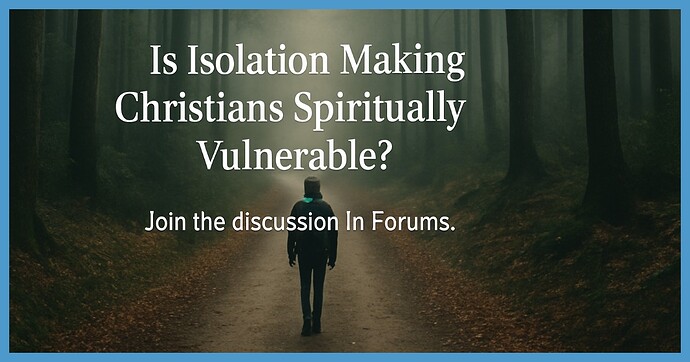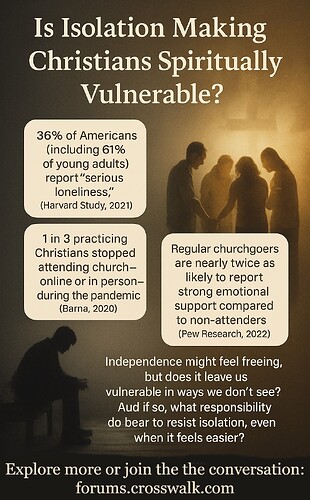Is Isolation Making Christians Spiritually Vulnerable?
In today’s world, more people than ever are living disconnected lives—whether because of technology, busy schedules, or cultural shifts that prize independence over community. But does this isolation have a spiritual cost?
#CommunityMatters #FaithInFellowship #SpiritualVulnerability #christianforums #crosswalkforums #forums #crosswalk #faithcommunity #faithforums
Social scientists are sounding alarms about rising loneliness, and churches are not immune. Attendance has dropped in many congregations, and more believers are relying on digital sermons or podcasts instead of in-person gatherings. While these tools can encourage faith, they often lack the accountability, encouragement, and shared strength that comes from real community.
Scripture has long emphasized the importance of fellowship—believers “devoted themselves to the apostles’ teaching and to fellowship” (Acts 2:42) and were warned “not to give up meeting together” (Hebrews 10:25). Yet modern culture seems to pull people in the opposite direction, encouraging private spirituality over communal faith.
So here’s the tension: could this growing isolation be making Christians more vulnerable to doubt, discouragement, or temptation? Without the balance of other believers speaking truth into our lives, do we risk drifting away unnoticed? On the other hand, some argue solitude allows deeper focus and prayer without distractions.
The debate raises pressing questions for churches, small groups, and individual believers navigating a culture that values independence but often leaves people spiritually adrift.
What do you think—does isolation weaken faith, or can it sometimes strengthen it?
Read more here:

